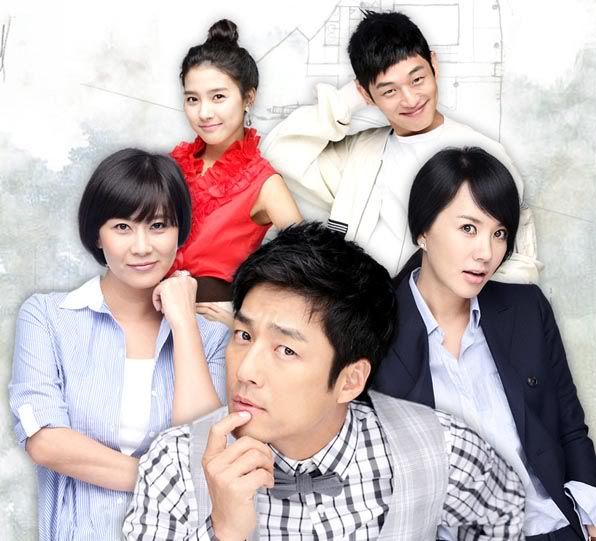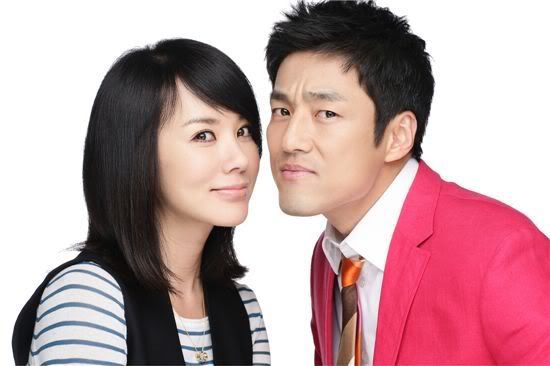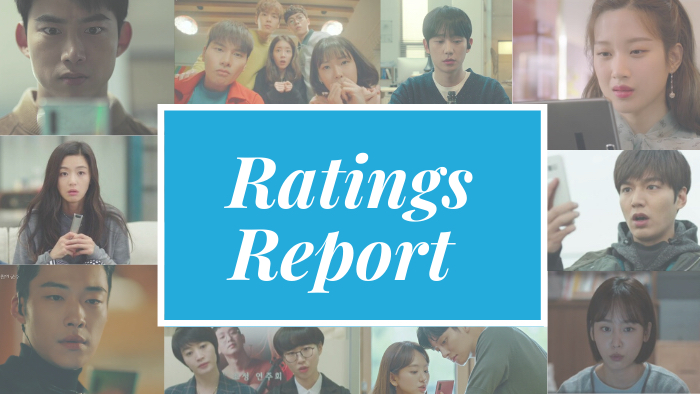The man who can’t get ratings
by javabeans

This is an interesting article, in that it looks at the low numbers faced by current Monday-Tuesday drama The Man Who Can’t Get Married and analyzes it from a cultural perspective. Most low-rated dramas (that aren’t disasters of writing/acting) tend to explain their disappointing numbers in terms of being too complicated for the average viewer or lacking in “makjang” (convoluted, unrealistically dramatic) qualities, but The Man Who Can’t Get Married is a bit different in that it’s also adapted from a Japanese series that enjoyed quite a lot of popularity. So why is the Korean version faltering?
The Man Who Can’t Get Married can’t attract popularity
Hidden birth secrets, mother/daughter-in-law conflicts, a handsome chaebol who falls for an ajumma without reason — it has none of those. All it has is the “man who can’t get married” who has reached the age of forty as a bachelor because of his extremely fastidious temperament.
KBS’s Man Who Can’t Get Married, remade from the popular 2006 Japanese drama of the same name, has been unable to shake off its low single-digit ratings. Compared to other dramas that have been remade from Japanese series like White Tower and Boys Before Flowers, it’s a disappointing result.

Media critics point out the main factor in the drama’s ratings failure as “the absence of conventional Korean-style drama format or characters.” That means that it lacks a fierce battle between good and evil, sudden fatal illnesses, and other customary elements of Korean dramas. Without the pretty boys, chaebol daughters, plucky and hardworking young heroines, or devoted wives and mothers that Koreans tend to prefer, the characters haven’t been able to satisfy the tastes of the viewers.
Critic Kim Sung-soo analyzes the situation, saying, “In Boys Before Flowers and White Tower, the appearance of villains to cause and heighten the conflict was close to the Korean style of dramas, whereas The Man Who Can’t Get Married shows detailed emotional threads through calm episodes, and is a Japanese-style drama. Korean viewers who are used to dramatic structuring can’t help but feel bored.”
Sticking overly close to its original source means that the drama hasn’t been able to satisfy Korean sentiments. In the earlier part of the series, the drama message board wasn’t merely about the episodes but looked at how similar the Korean version was to the original, down to its smallest details, and viewers felt the Korean version lacked appeal.
In particular, although it is recognized that the episode where the male lead (Ji Jin-hee) goes to a barbecue restaurant alone is a device used to reveal his personality, some feel that it was an awkward setup given how we are not familiar with a culture of aloneness. One netizen criticized, “It feels like they took a Japanese drama and dubbed it over in Korean. It’s taken too exactly from the Japanese version so I can’t relate to the characters’ words or actions.”
Culture critic Choi Young-kyun said, “In the case of Boys Before Flowers, the drama was adapted to appeal to Korean tastes. Now that The Man Who Can’t Get Married is in its latter half, in order to gain popularity and connect with the public, it will need to try seasoning itself with a Korean flavor.”
What I find particularly interesting about this argument is that foreign dramas are quite popular in Korea, and never is the cultural difference an issue with enjoying them (e.g., Prison Break, Lost, Hana Yori Dango). But when adapting, “Korean-ness” — however one may define that broad, general sentiment — is an essential element. An ordinary citizen doesn’t necessarily have to have a horrible mother-in-law, a Cinderella complex, a vengeful ex, or a rich chaebol suitor to relate to those oft-seen kdrama characters in those unrealistic dramas that attract such high popularity. Even when the circumstances are completely off-the-wall, it’s the feelings that people respond to, and it seems that when viewers are unable to relate the Korean-ness of the emotions, the connection falls flat.
All that said, I think those who do like this drama aren’t hindered by those factors, and for those reasons I wonder if a foreign audience may be more open to the drama. When you can see it without worrying over the cultural dissonance factor, it’s probably a lot more fun.
Via Kuki News
RELATED POSTS
Tags: drama ratings, j-doramas, Ji Jin-hee, remakes, The Man Who Can't Get Married, Uhm Jung-hwa


![[Rate and Review] The Winning Try](https://dramabeans.com/wp-content/uploads/2025/07/TheWinningTry_reviewb.jpg)



![[Drama Chat] Same drama, different timelines](https://dramabeans.com/wp-content/uploads/2025/08/dramachat_august302025.jpg)



Required fields are marked *
Your email address will not be published. Required fields are marked *